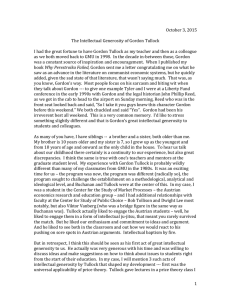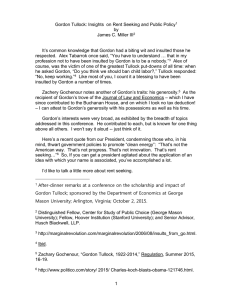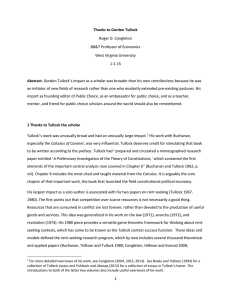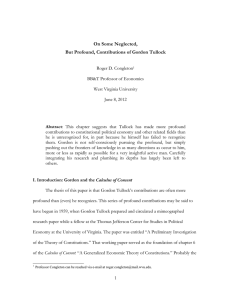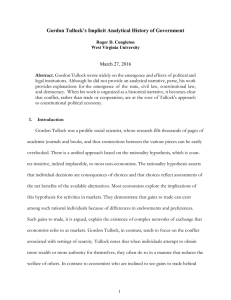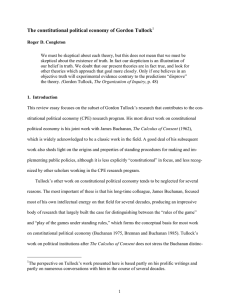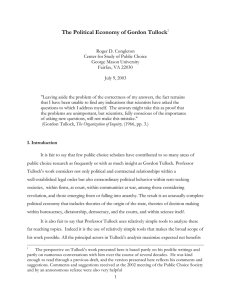What I Learned from Gordon Tullock Prof. Bryan Caplan
advertisement
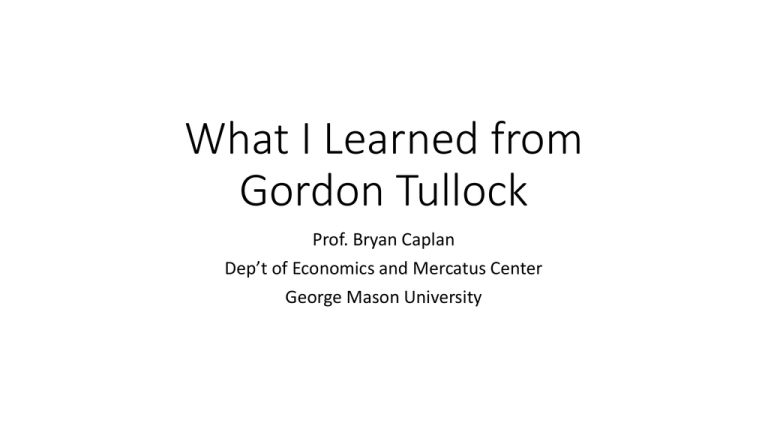
What I Learned from Gordon Tullock Prof. Bryan Caplan Dep’t of Economics and Mercatus Center George Mason University My Time With Tullock • I met Gordon Tullock in the summer of 1993, soon after reading The Calculus of Consent in college. • I joined the GMU econ faculty in 1997. Two years later, Gordon returned to GMU. • I regularly saw and lunched with Gordon until his retirement. • Still, it’s hard for me to separate the man from his ideas, because Tullock’s ideas infused his whole existence. • Highlights… Political Man • Tullock wasn’t just one of the first social scientists to use economics to understand politics. He remains one of the most thoughtful. • Unlike Buchanan, Tullock didn’t see politics as “an exchange.” Instead, he saw self-interested actors playing a brutal game of “finders keepers.” • This is especially clear in Tullock’s work on dictatorship. Dictators aren’t just milking their subjects for all they’re worth. They’re also desperately trying to stay alive. • Yet Tullock was quick to acknowledge anomalies – and fit them into his broader framework. • The charity of the uncharitable. • The evolution of constitutional monarchy in 19th-century Europe. Ultra-Cynicism • Tullock was proudly cynical. This let him see ugly truths most social scientists prefer to ignore. • The paradox of revolution: Contrary to almost every historical narrative, the mass of men are politically apathetic. • The nature of revolution: Winners overcome this silent apathy by any means necessary. This is never pretty at the time, and normally ends in disaster. • The good news: Political apathy spares mankind the horrors of “successful” revolution. Iconoclasm • Tullock’s deepest lesson, though, is: Ask awkward questions. • Two random examples: • What’s so bad about dictatorship? • Give me one good reason not to invade Brazil. • Technically, many economists had the skills to do what Gordon did. But very few tried to compete with him. • Why? Because Gordon wasn’t afraid to offend. • Many people have told me that Gordon’s iconoclasm cost him a Nobel Prize. To me, this misses the real point: Gordon deserved a Nobel Prize because of his iconoclasm. Gordon Tullock, 1922-2014

